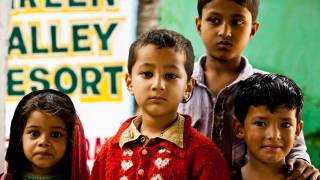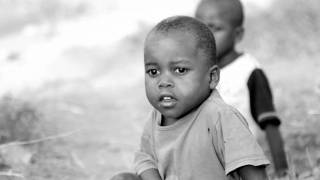Single-Dose Oral Cholera Vaccine Effective in People Age 5+

Cholera continues to harm the most vulnerable people worldwide: children.
In most industrialized countries, such as the USA, cholera is generally a non-issue.
But, diarrhoeal diseases are a major source of preventable morbidity and mortality, and in 2015 claimed the lives of more than 1·3 million people, of whom 499,000 were children younger than 5 years, reported a 2017 study.
Cholera, a disease caused by Vibrio cholerae bacteria, is acquired by ingesting contaminated water or food and causes watery diarrhea that can range from mild to extremely severe, says the CDC.
A single-dose regimen of inactivated whole-cell oral cholera vaccine (OCV) is attractive to health officials because it reduces logistical challenges for vaccination and could enable more people to be vaccinated.
Moreover, giving a second dose of OCV on schedule can be challenging during crisis situations.
In a new, 2-year follow-up study, a single dose of the inactivated whole-cell, Oral Cholera Vaccine (OCV) offered protection to older children and adults and was sustained for at least 2 years.
Previously, these researchers reported the efficacy of a single dose of an OCV vaccine during the 6 months following dosing. Consistent with results from the 6-month follow-up study, the vaccine failed to protect children under the age of 5 from the disease.
The lower efficacy in young children might be explained by their reduced pre-vaccination exposure to and immunological priming by natural cholera infections.
The nature of the protective antigen in the OCV might require immunological priming, said these researchers.
This study was published in The Lancet Infectious Diseases and is based on a 2014 Bangladeshi trial, where the overall incidence rates of initial cholera episodes during the 2 years were 0.22 per 100,000 person-days in vaccine recipients versus 0.36 per 100,000 person-days in placebo recipients.
For recipients ages 5 to 15, the cholera vaccine was 52% effective in protecting against all cholera and 71% effective in protecting against severe episodes.
For adults, the vaccine protective efficacy was 59% against all cholera episodes.
Our results indicate that when emergencies occur in populations with endemic cholera, the challenges of successfully completing a two-dose regimen should not deter deployment of OCV because older children and adults will be protected for at least 2 years by a single dose.
Also, because the global production of inactivated whole-cell OCV is limited, a scarcity of doses might make it desirable in cholera-endemic settings to deploy a single-dose regimen to older children and adults, reserving a two-dose regimen for young children.
In the USA, the FDA recently approved a single-dose live oral cholera vaccine called Vaxchora (lyophilized CVD 103-HgR).
Vaxchora has been reported to reduce the chance of severe diarrhea in people by 90% at 10 days after vaccination and by 80% at 3 months after vaccination.
The safety and effectiveness of Vaxchora in pregnant or breastfeeding women is not yet known.
The vaccine is not regularly recommended for most travelers from the United States, as most travelers do not visit areas with active cholera transmission. No country or territory currently requires vaccination against cholera as a condition for entry, reports the CDC.
There are two oral inactivated vaccines that are WHO prequalified, but are not available in the U.S.A:
- Dukoral (manufactured by SBL Vaccines)
- ShanChol (manufactured by Shantha Biotec in India)
Most travel clinics within pharmacies offer cholera vaccination services.
Our Trust Standards: Medical Advisory Committee
- Estimates of global, regional, and national morbidity, mortality, and aetiologies of diarrhoeal diseases: a systematic analysis
- Efficacy of a single-dose regimen of inactivated whole-cell oral cholera vaccine: results from 2 years of follow-up of a randomi
- High-dose Cholera Vaccine Works Best
- Cholera - Vibrio cholerae infection


























